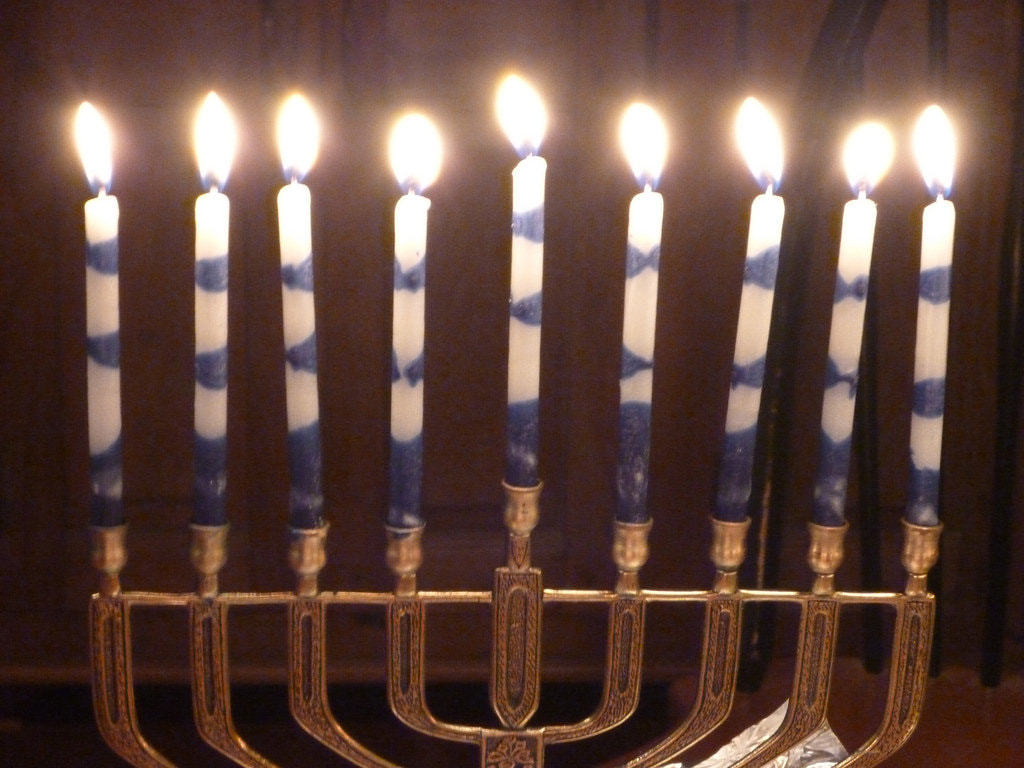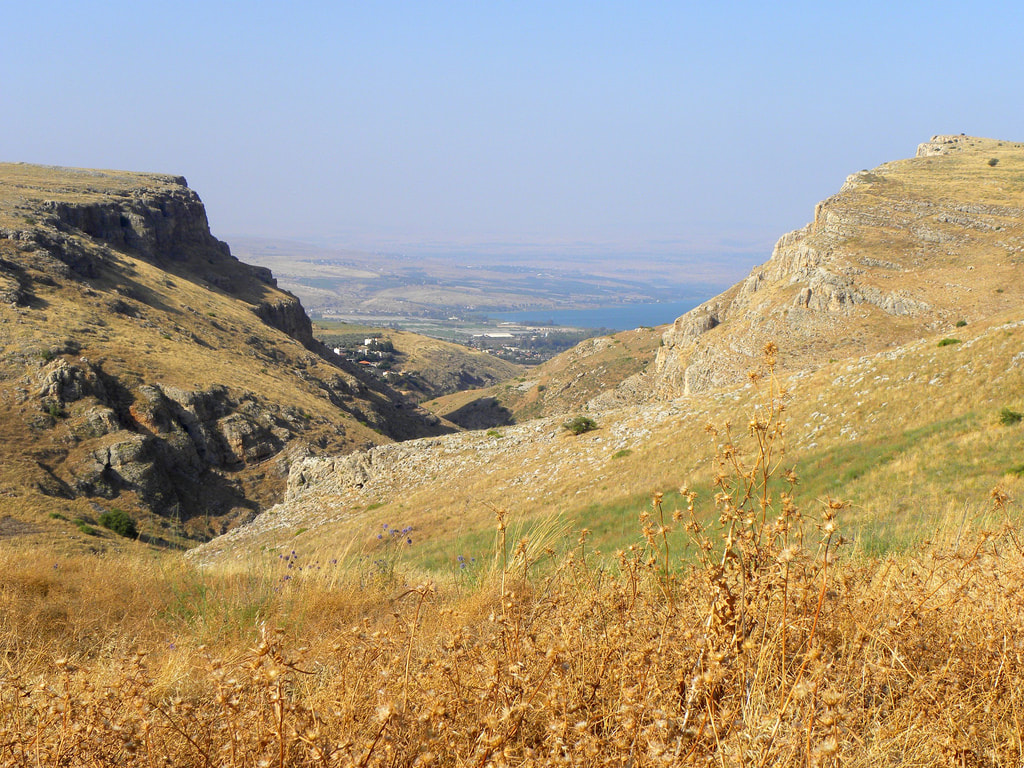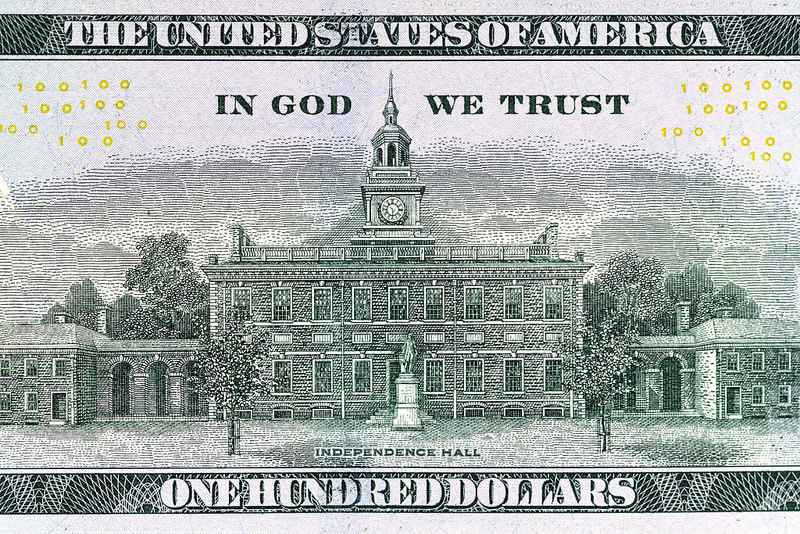|
The candles were lit, and dinner was served. We were enjoying conversation with our friends when we realized that melted wax was running down the side of the tapers. I forget to trim the wicks. Not only was the wax being burned too quickly, but the flame was producing smoke. Professional candle makers recommend that you trim the wick after every burn. Most say the ideal length for the wick is about 1/4". This length gives the cleanest and brightest flame without smoke and soot.
God instructed Moses to build a tabernacle for Him so that He could dwell among His people. Included in the furnishings for the tabernacle was a lampstand and wick trimmers made of pure gold. (Exodus 25:38 & 37:23) The lamps held pure oil. The job of the priests was to keep the lamps burning from evening until morning. Wick trimmers were used by the priests to keep the lamps burning brightly. (Exodus 27:20-21) When Solomon built the temple it had many more lamps in it than the tabernacle. Wick trimmers made of pure gold were used regularly so that the flames of the lamps were bright and clean. (1 Kings 7:50) Note that pure gold was used in the forming of all the utensils for both the tabernacle and temple. Gold speaks of the Divine nature and the glory of God in His holiness. How does this relate to us? God made it clear that one day His temple would not be made with wood and stones and that He would make a new covenant with His people. "...We are the temple of the living God..." (2 Corinthians 6:16) Paul asked the Corinthians a question: "Do you not know that your body is a temple of the Holy Spirit, who is in you, whom you have received from God? You are not your own." (1 Corinthians 6:19) In addition, God has made us to be a kingdom of priests to serve Him. (Revelation 1:6 & 5:10) We are to be the light bearers for the Lord Jesus. Just as Christ is the light of the world (1 John 1:5), we are also. We are told: "Let your lights shine before men, that they may see your good deeds and praise your Father in heaven." (Matthew 5:16) Luke records the words of Jesus to His disciples concerning light in Luke 11:35-36. "See to it, then, that the light within you is not darkness. Therefore, if your whole body is full of light, and no part of it dark, it will be lighted, as when the light of a lamp shines on you." If we look at the beginning of the book of Revelation, we can read about the way the Lord dealt with the seven churches—called the seven lampstands—for their deeds. He trimmed their lamps so that they would burn more brightly. He desires that we also burn more brightly for the world to see. In addition, we are to prepare ourselves for His second coming. Look at the story of the 10 virgins told in Matthew 25. "The Kingdom of Heaven will be like 10 virgins who took their lamps and went out to meet the bridegroom." Only five wise virgins carried their lamps along with a jar of oil and the tool for trimming their lamp. "At midnight the cry rang out: 'Here's the bridegroom! Come out to meet Him!' Then all the virgins awoke and trimmed their lamps." The unwise virgins did not have enough oil and did not arrive in time to go to the wedding banquet. The five who were prepared went in and the door was shut. This story is meant to encourage us to keep our wicks trimmed and our lamps full of oil. Leviticus 24:3 records instruction to Aaron the priest and all priests to come. "Tend the lamps before the Lord from evening till morning, continually. This is to be a lasting ordinance for the generations to come." As the Lord's priests and vessels, we must not only stay filled with the oil of the Holy Spirit, but trim our wicks. This means getting rid of any waste in our lives that would hinder us from burning brightly. May the Lord always find us full of oil and burning cleanly and brightly for Him. I was not looking forward to a recent visit to the dentist to have a filling replaced, but God turned this visit into an opportunity for me to have a Kingdom discussion with the dental assistant. He told me how important it is to have good oral hygiene and that the health of our mouths can impact the health of every area of our bodies. Holy Spirit quickly showed me how this conversation about the physical body could be applied to the spiritual realm. When I returned home I researched what we had spoken about on "webmd" and "absolutedental.com." The sites confirmed what the dental assistant had said about the importance of oral health. The mouth is called "the gateway to the body," and because of this, "Poor oral health can have negative consequences for the entire body." "Absolutedental.com" says this: "Bacteria from the mouth can easily get into the bloodstream and cause infection and inflammation wherever it spreads...The following health problems can be caused by poor oral health: cardiovascular disease, dementia, respiratory infections, diabetes, pregnancy complications, infertility, erectile dysfunction, cancer, kidney disease and rheumatoid arthritis." Honestly, I was completely surprised by this extensive list. Spiritual good health for our mouths is just as important as physical. What comes out of our mouths will impact all aspects of our being, and that of others, for good or evil. There are over one hundred Scripture verses in the Bible that give us direction on how to use our mouths. The book of James dedicates most of Chapter 3 to the subject of taming the tongue. "The tongue is a small part of the body, but it makes great boasts. Consider what a great forest is set on fire by a small spark. The tongue also is a fire, a world of evil among the parts of the body. It corrupts the whole person, sets the whole course of his life on fire, and is itself set on fire by hell." (Verses 5-6) "With the tongue we praise our Lord and Father, and with it we curse human beings, who have been made in God's likeness. Out of the same mouth come praise and cursing. My brothers and sisters, this should not be." (Verses 9-10) As we see, our words have the power to bring life or death to our own souls and to the souls of others. The power of our tongues is confirmed in the fact that we are made in God's image and that with His words, He created the universe. "By the word of the Lord the heavens were made, their starry host by the breath of His mouth." (Psalm 33:6) Learning that our mouths can be used to bless or to curse, King David asked the Lord for help in controlling it in Psalm 141:3. "Set a guard over my mouth, Lord; keep watch over the door of my lips." The book of Proverbs has much to say about what comes out of our mouths. "The mouths of fools are their undoing, and their lips a snare to their very lives." (Proverbs 18:7) "A wise man's heart guides his mouth, and his lips promote instruction." (Proverbs 16:23) Matthew wrote, "What goes into someone's mouth does not defile them, but what comes out of their mouth, that is what defiles them." (Matthew 15:11) Paul understands the ramifications of what comes out of our mouths and how it affects others: "Do not let any unwholesome talk come out of your mouths, but only what is helpful for building others up according to their needs, that it may benefit those who listen." (Ephesians 4:29) Jesus warned about the judgment day and said, "For by your words you will be acquitted, and by your words you will be condemned." (Matthew 12:37) We must recognize the power we carry to bring about good or poor health in our bodies and souls and those of others. As I have told you before, whatever kingdom we agree with impacts us and those around us in a positive or negative way. The Holy Spirit can and will assist us if we ask Him for help in controlling our mouths. Let this be our prayer: "May the words of my mouth and this meditation of my heart be pleasing in your sight, Lord, my Rock and my Redeemer." (Psalm 19:14)
We are in the month Av, a month when we should remember the way the Israelites, through their sin of unbelief, stopped the plan of God for their blessing. Av means Father, and it was Father God's intention to make Av a month to celebrate His goodness and generosity. This was the month that they were to take possession of the Promised Land--the land of milk and honey. However, Father required that they believe His promise to them. God's promise was given multiple times, starting with Abraham. In Genesis 15:7 we read what God said to Abraham: "I am the Lord who brought you out of Ur of the Chaldeans to give you this land to take possession of it." The following verses of Genesis 15 describe how God made a covenant with Abraham. In verse 18 He says, "To your descendants I give this land, from the river Egypt to the great river, the Euphrates." To Jacob, the Lord said, "I am with you and will watch over you wherever you go, and I will bring you back to this land. I will not leave you until I have done what I have promised you." (Genesis 28:15) To Moses He said, "Leave this place, you and the people you brought up out of Egypt, and go up to the land I promised on oath to Abraham, Isaac and Jacob, saying, 'I will give it to your descendants.' I will send an angel before you and drive out the Canaanites, Amorites, Hittites, Perizzites, Hivites and Jebusites." (Exodus 33:1-2) When Joshua began to lead the Israelites to the Promised Land, God said, "Go through the camp and tell the people, 'Get your supplies ready. Three days from now you will cross the Jordan here to go in and take possession of the land the Lord your God is giving you for your own.'" (Joshua 1:11) Not only did Father God make His intentions to give Israel the Promised Land clear to Abraham, but He confirmed it multiple times to Israel's leaders, reminding them of this truth. It was Moses who sent a representative from each tribe into the Promised Land to explore it. The 12 explorers returned after 40 days to report that the land flowed with milk and honey. Ten men described the large, fortified cities occupied by descendants of Anak. They talked about the great size of these people and said, "We seemed like grasshoppers in our own eyes, and we looked the same to them." (Numbers 13:33) All of Israel was presented with a dilemma. The fact was that there were giants in the land; the truth is that God promised, many times, to give them the land! The question is: "Who would they believe?” Sadly, they chose to rebel against the Lord. They denied the truth for a fact! For their sin of unbelief, God punished them. None of them would see the Promised Land except Joshua and Caleb. And, a cycle of destruction was put into place in the lives of the Jewish people that came during the month of Av year after year. A few of these events include the destruction of both temples and the expulsion of the Jews from England, Spain and Gaza on the 9th of Av. The destructive cycle continues today. The lesson of Av has been made clear to us today. We can choose to believe the promises of God that are His truth for our lives or we can believe in facts. God's promises are "'Yes' in Christ. And so through Him the 'Amen' is spoken by us to the glory of God." (2 Corinthians 1:20) Facts can change, but God's truth cannot change because it is forever "settled in heaven." (Psalm 119:89-KJ) In living life, we are presented with challenges that require us to decide if we will trust God and His promises. We must choose to believe the truth! God is so committed to the truth of His Word that He magnifies it above His name. (Psalm 138:2) Traveling around Israel one frequently sees a plant called Desire or Caper bush (Capparis spinosa). This tenacious plant has taken root in the cracks between the stones that make up the Western Wall and the remainder of the wall that surrounds the Old City of Jerusalem. I also saw it growing from the rocks at En Gedi and out of the crevices and holes in the rocks of the Cliffs of Arbel.
There is only one place in the Bible where this plant is mentioned, and it is done in such a way that one may not recognize it. The author of Ecclesiastes writes about it in Chapter 12, Verse 5. He begins chapter 12 by telling the read, "Remember your Creator in the days of your youth, before the days of trouble come...when men are afraid of heights and of dangers in the streets; when the almond tree blossoms and the grasshopper drags himself along, and desire (Hebrew = avionah) is no longer stirred..." (NIV) In the King James Version it says, "Desire shall fail..." while The Complete Jewish Bible says, "the caper berry has no effect..." The writer of Ecclesiastes wants his readers to understanding how challenging life can be in later years. Yet, the Caper bush defies the doom and gloom of this verse by the way it grows. It is native to hostile growing conditions--rooted in cliffs, stone walls and rock crevices in the full sun. Actually, this plant thrives in areas that have poor, dry and rocky soils. It is a spiny evergreen shrub that grows 2' to 3' tall and can spread up to 6'. The flowers stand out above the round leaves and spiny stems. The 2" to 3" white-petaled flowers have purple stamens that rise from a pale-yellow flower center. The Caper blooms profusely from March till August. It is the unopened flower buds of the Caper that are picked and preserved in salt or pickled vinegar to be used as garnishes on a variety of foods. When the flowers are permitted to stay on the plant, they produce an oblong, edible fruit called Caper berries. For me, one of the most interesting characteristics of the flowers on the Caper bush is that they only last for one day. They are in full bloom and at the height of their beauty during the night time. This, along with the fact that the bush roots in rocks, speaks to me. The physical attributes of the Caper bush give us some spiritual principles:
It does not matter what age we are or the season of life we are in. If we establish ourselves on the Lord, our Rock, and blossom wherever we find ourselves; like the Caper bush we will produce fruit that glorifies Him. "In God, whose word I praise, in God I trust; I will not be afraid. What can mortal man do to me?" (Psalm 56:4) It is this Scripture and many others in the Bible that may have inspired a Baptist minister from Ridleyville, PA, named Rev. Mark Watkinson, to write a letter to the Treasury Secretary in 1861. He urged the Secretary to recognize "The Almighty God in some form on our coins." This set into motion a move in the U. S. Congress during President Lincoln's administration to place the motto on two cent pieces. The coins with this motto were approved in 1864. In 1956, the 8th Congress passed legislation that the phrase "In God We Trust" must appear on American currency. President Dwight Eisenhower approved it. The same Congress also unanimously passed a law declaring that this phrase should be the United States national motto.
Is it not our acknowledgement of and dependence on God that sets apart America from all other nations? The writers of the Declaration of Independence gave God glory for the establishment of our nation in which we have the freedom to pursue "life, liberty and the pursuit of happiness.” They also acknowledged that the unalienable rights of men were given "by their Creator." Yet, there are those in our country who desire to eradicate every reminder of our Judeo-Christian roots. Recently, Satanist Kenneth Mayle challenged the constitutionality of the phrase "In God We Trust" on our U. S. currency. His contention is that he is being forced to spread the message of Christianity and that his First Amendment rights and the Religious Freedom Restoration Act (RFRA) are being violated. Judge Diane Wood of the 7th Circuit Court of Appeals in Chicago decided that Mayle's rights as a non-monotheistic believer were not violated, and that the motto "In God We Trust" is "one of many historical reminders" that should not be perceived "as a religious endorsement." Other challenges to the motto came before this one. In 1970 there was an unsuccessful attempt to take "In God We Trust" off of our currency. The District Court said, in part, that the motto has "spiritual and psychological value and inspirational quality." Even though an appeal was filed with the Supreme Court, they declined to hear the case. Another challenge occurred from 2006 to 2010 but never got traction. A case filed in 2013 was also defeated. Although America is characterized by a diversity of religious beliefs and practices, there is no doubt that our founding fathers were primarily God-fearing people who intended that this nation honor God and follow His laws. In the year 2006, the 50th anniversary of the adoption of "In God We Trust" as the national motto, the Senate reaffirmed the resolution. Five years later, the House of Representatives did the same thing. As we begin our week of celebrating Independence Day, how should we respond to what is happening in our country? While it is true that there is a remnant that is crying out to God for revival to come to our nation, the Church has been somewhat ineffective in the past in leading the way to placing God back on the throne of our land. We must demonstrate the truth of our national motto, "In God We Trust," by living a life worthy of His sacrifice and carrying His light wherever we go. Let the inspirational words of our United States Anthem, The Star-Spangled Banner, written by Francis Scott Key in 1814, inspire us. It is the 4th stanza that contains the declaration of our trust in the Almighty God: "Oh, thus be it ever, when freemen shall stand Between their loved home and the war's desolation! Blest with victory and peace, may the heaven-rescued land Praise the Power that hath made and preserved us a nation. Then conquer we must, when our cause it is just, And this be our motto: 'In God is our Trust.' And the Star-Spangled Banner in triumph shall wave O'er the land of the free and the home of the brave!" |
Joan E. MathiasCategories
All
Archives
July 2024
|





 RSS Feed
RSS Feed